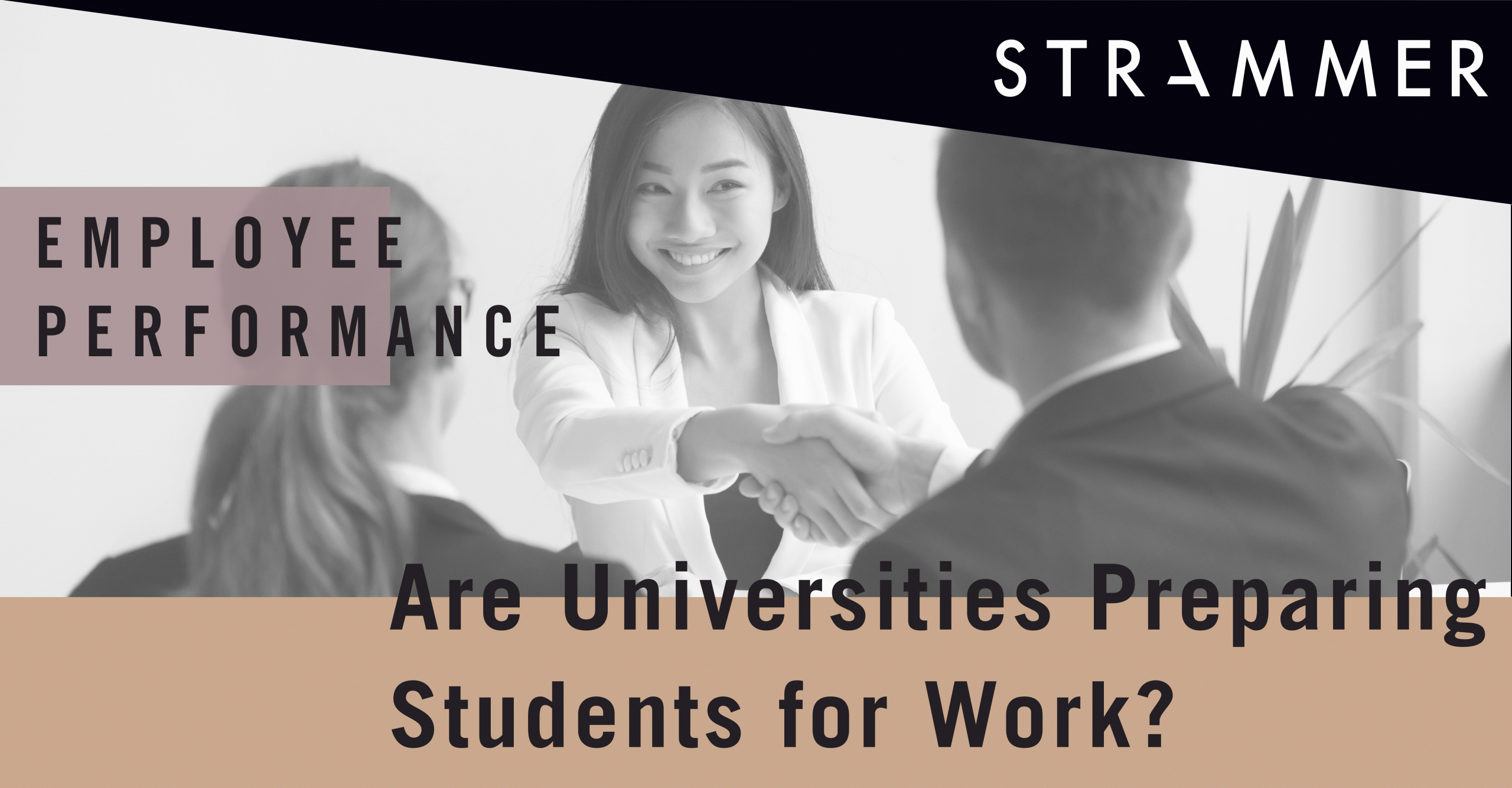Are universities preparing students for work?
We have repeatedly heard that the key to success is a good education. We spent our school years, studying to enter the best universities, hoping to find the right job and have a prosperous career. However, it is important to reflect on whether universities are really preparing us for work and the real world.
During our time at university, we must find guidance/orientation, choose a career/expertise and improve our knowledge and skills. The problem is, often we are overwhelmed with theory and practical learning is forgotten. Emily Quadros, a student in Montreal and our intern at STRAMMER, believes that what we learn at university is too broad, which makes it difficult to understand if we like the field or not. For her, internships help us understand whether we like the job/sector and whether we should pursue them.
If we compare someone who is working and someone who is studying during the same period, the one who was working would acquire more relevant workplace knowledge/skills and would be more fit for the job. However, one should not undervalue the theory, as it is also crucial. But perhaps universities are giving it too much importance and students are spending too much time on it. While we are taking a bachelor or a master, there is little or no interaction with the professional world.
This is also Moustafa Serageldin’s opinion. He is also an intern at STRAMMER and a student in Toulouse. He told us that the only contact he had with the professional world as a student was through seminars and conferences. In his opinion, the lack of contact with the professional world makes it difficult for students to integrate into the workplace. Emily also told us that in her student years, she had some part-time jobs in the service industry, but it was always a personal choice.
As we have seen from their experience, most of the times students are not encouraged by universities to have contact with the professional world. Thus, most of us look for a job/internship after graduating from university, with no experience. Obviously, it is challenging to find one, as organisations look for experienced candidates and this becomes a cycle: no experience, no job; no job, no experience.
Besides being inexperienced, recent graduates rarely master workplace skills, such as communication, public speaking, critical thinking, knowledge of the software like Excel and Word, etc. Employers see this as a problem, as they will need to spend time, money and resources to teach these workers.
However, at university, students do develop their social skills. There, they need to deal with very diverse people, just like in the workplace. Emily and Moustafa agree. These skills helped them to deal/adapt to different people and to communicate clearly. Plus, entering university coincides with the moment when we gain more independence and become more autonomous, as it is the beginning of our adult life. This help them in the workplace.
Moustafa considers that, during his university years, he also acquired two other important skills: time and stress management. Mastering these skills has helped him stay more productive and focused. Although he believes these skills are important in his internships, he feels that university has not prepared him enough for the work reality. The job market is not static. New areas and issues arise everyday (pollution, data management, etc.) and as a result new jobs and roles are or will be created. According to a 2016 World Economic Forum study, around 65% of children entering school will have jobs that do not yet exist. Thus, universities and their programmes must adapt to this reality.
All things considered, it is crucial to reflect on how universities can address these issues and improve their programmes. They can start by encouraging and supporting students to do internships, volunteer work, visits to companies, etc. Also, students need to get to know recent graduates or people who work in their field to learn more about the reality of work and to mentor them. In addition, workplace skills/abilities should be included in university programmes. It would be an easier way for students to acquire and develop them. These are some of the things that universities can do to better prepare undergraduates for the workplace, and it is vital to start now.
When asked what should change in the professional world, Emily told us that universities must spend more time understanding what motivates and drives students in their life, to help them narrow the fields they should pursue.
For Moustafa it is crucial to invest and strengthen teamwork skills in part due to the open space in the workplace which makes interactions a big part of our daily work. To do so, universities must encourage group projects.
References:
- Does College Really Prepare Students for Work & the Real World?, CAREER GEEK
- Does College Prepare Students For The Real World?, September 2017, Forbes





